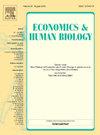2019冠状病毒病大流行期间的公共政策和杀害妇女行为:来自巴西圣保罗的证据
IF 1.8
3区 医学
Q2 ECONOMICS
引用次数: 0
摘要
随着2020年初2019冠状病毒病(COVID-19)大流行的爆发,人们担心居家政策可能加剧对妇女的暴力行为。有证据表明,在一些国家,打家庭暴力求助热线的电话有所增加。然而,有限的经济研究调查了该流行病对杀害妇女的影响,这是对妇女的暴力行为的最极端形式。本文考察了2019冠状病毒病疫情期间在巴西圣保罗实施的社会隔离措施和紧急援助政策对杀害妇女行为的影响。利用2016年至2020年的每日杀害妇女数据、社会隔离指数、每月就业和紧急现金转移数据,我们估计了固定效应模型。我们的研究结果显示,在明显隔离期间(2020年3月至4月),杀害妇女的概率增加了一倍以上(0.32个百分点)。在较贫穷的城市,这种影响更为显著,在那里,男性失业推动了这一增长。然而,向贫困地区提供紧急援助,覆盖了这些地区29.8%的人口,减轻了这种有害影响,使其减少了就业冲击的两倍多。这些结果强调了危机期间经济状况、社会政策和基于性别的暴力之间的相互作用。本文章由计算机程序翻译,如有差异,请以英文原文为准。
Public Policies and Femicides during the COVID-19 Pandemic: Evidence from São Paulo, Brazil
With the outbreak of the COVID-19 pandemic in early 2020, concerns arose that stay-at-home policies could exacerbate Violence Against Women (VAW). Evidence shows an increase in calls to domestic violence helplines in several countries. However, limited economic studies have investigated the pandemic’s effects on femicides, the most extreme form of VAW. This paper examines the effects of social isolation measures and emergency aid policies implemented during the COVID-19 outbreak on femicides in São Paulo, Brazil. Using daily femicide data from 2016 to 2020, a social isolation index, and monthly employment and emergency cash transfer data, we estimate fixed-effects models. Our findings reveal that the probability of femicide more than doubled (0.32 p.p.) during periods of pronounced isolation (March-April 2020). The impact was more significant in poorer municipalities, where male job losses drove this increase. However, the provision of emergency aid in poorer areas, which covered 29.8% of the population in these areas, mitigated this harmful effect, reducing it by more than twice the magnitude of the employment shock. These results underline the interplay between economic conditions, social policies, and gender-based violence during crises.
求助全文
通过发布文献求助,成功后即可免费获取论文全文。
去求助
来源期刊

Economics & Human Biology
医学-公共卫生、环境卫生与职业卫生
CiteScore
4.50
自引率
12.00%
发文量
85
审稿时长
61 days
期刊介绍:
Economics and Human Biology is devoted to the exploration of the effect of socio-economic processes on human beings as biological organisms. Research covered in this (quarterly) interdisciplinary journal is not bound by temporal or geographic limitations.
 求助内容:
求助内容: 应助结果提醒方式:
应助结果提醒方式:


